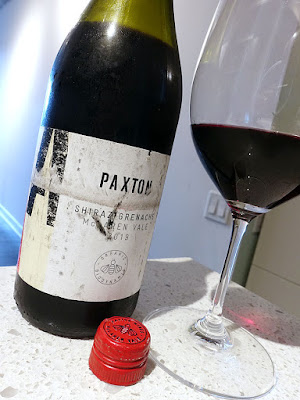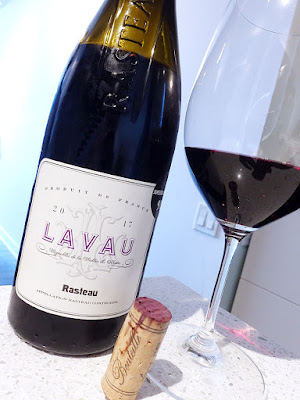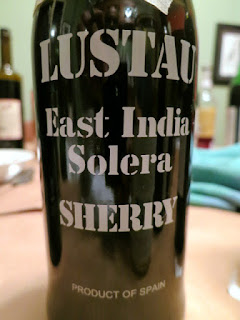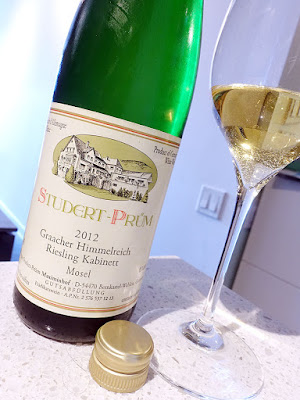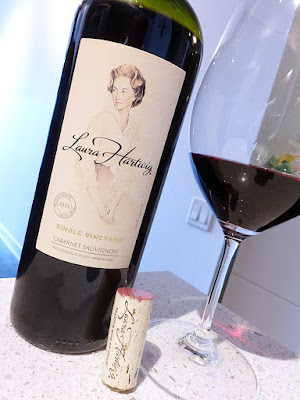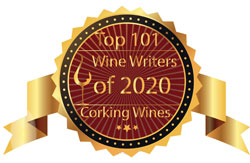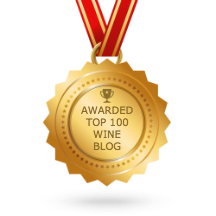wine review is the latest vintage of this lovely Muscadet Sèvre-et-Maine white wine that is made using the Melon de Bourgogne varietal. It arrived at the LCBO over the weekend, as part of the LCBO VINTAGES Release on .
Domaine la Haute Févrie was founded in the heart of the Muscadet Sèvre et Maine appellation, 18 km southeast of Nantes, Loire, during the First World War by Claude Branger's grandfather. Claude worked alongside his father for many years, and in 2007, Sébastien Branger, Claude's son, joined the domain to become the fourth generation of the family to carefully tend the vines. The estate vines are grown on hills overlooking the Sèvre River, between the communes of Saint-Fiacre and Monnières, and enjoy optimum ripening conditions. The Branger's are conscientious winegrowers, harvesting all of the grapes by hand. Starting in 2016, Sébastien embarked on a vision to convert all of their vineyards to organic farming, and by 2019 all of the domain's parcels was fully certified to organic.
The grapes for this wine come from their "Les Gras Moutons" named single vineyard, which translates to "Fat Sheep", perhaps because there was a well-fed sheep that used to graze on this land. The wine is named "Le Fils des Gras Moutons", which translates to "The Son of the Fat Sheep", perhaps because the first sheep was the father of a lamb.
In all seriousness, "mouton" is actually a variant on the Old French word motton, which means a slight rise or small hill. Thus, "Gras Moutons" refers to larger hill where the grapes for this wine were grown. It is made with 100% Melon de Bourgogne from 26 acres of vines in earlier maturing plots of the Les Gras Moutons vineyard. The vines average 40+ years old and are planted on soils that sit on granite bedrock that is metamorphic gneiss full of mica and quartz. The grapes are hand-picked and rest on lees for 6-7 months prior to bottling.
I've enjoyed this white wine numerous times over the years, including most recently last July when the 2018 Le Fils des Gras Moutons Sur Lie Muscadet Sèvre-et-Maine arrived in LCBO VINTAGES last June. Although yields were down in 2019, the quality was very good, especially for white wines. Let's see how this white wine is tasting tonight...
100% Melon de Bourgogne. Fresh, intense, lemon-lime citrus, and wet stone aromas with hints of saline, orange peel and musky spice notes rising out of the glass. It's medium+ bodied and ripe on the palate with very good concentration and flavours of lemon-lime citrus, wet stone, oyster shell mineral, saline, and touches of honey. It's nicely balanced throughout with very good acidity and a finely textured mid-palate. It finishes with lovely wet stone minerals and tart lemons on the lip-smacking, juicy finish, with excellent length. Easily the best vintage I've tasted. Chill and enjoy this highly recommended buy. Score: 90 pts
Other lovely wines from Domaine la Haute Févrie can be ordered through their Agent - Connexion Oenophilia.
Domaine la Haute Févrie was founded in the heart of the Muscadet Sèvre et Maine appellation, 18 km southeast of Nantes, Loire, during the First World War by Claude Branger's grandfather. Claude worked alongside his father for many years, and in 2007, Sébastien Branger, Claude's son, joined the domain to become the fourth generation of the family to carefully tend the vines. The estate vines are grown on hills overlooking the Sèvre River, between the communes of Saint-Fiacre and Monnières, and enjoy optimum ripening conditions. The Branger's are conscientious winegrowers, harvesting all of the grapes by hand. Starting in 2016, Sébastien embarked on a vision to convert all of their vineyards to organic farming, and by 2019 all of the domain's parcels was fully certified to organic.
The grapes for this wine come from their "Les Gras Moutons" named single vineyard, which translates to "Fat Sheep", perhaps because there was a well-fed sheep that used to graze on this land. The wine is named "Le Fils des Gras Moutons", which translates to "The Son of the Fat Sheep", perhaps because the first sheep was the father of a lamb.
In all seriousness, "mouton" is actually a variant on the Old French word motton, which means a slight rise or small hill. Thus, "Gras Moutons" refers to larger hill where the grapes for this wine were grown. It is made with 100% Melon de Bourgogne from 26 acres of vines in earlier maturing plots of the Les Gras Moutons vineyard. The vines average 40+ years old and are planted on soils that sit on granite bedrock that is metamorphic gneiss full of mica and quartz. The grapes are hand-picked and rest on lees for 6-7 months prior to bottling.
I've enjoyed this white wine numerous times over the years, including most recently last July when the 2018 Le Fils des Gras Moutons Sur Lie Muscadet Sèvre-et-Maine arrived in LCBO VINTAGES last June. Although yields were down in 2019, the quality was very good, especially for white wines. Let's see how this white wine is tasting tonight...
Tasting Note:
LE FILS DES GRAS MOUTONS SUR LIE MUSCADET SÈVRE-ET-MAINE 2019 - AC, Loire, France (#363150) (XD) - $16.95100% Melon de Bourgogne. Fresh, intense, lemon-lime citrus, and wet stone aromas with hints of saline, orange peel and musky spice notes rising out of the glass. It's medium+ bodied and ripe on the palate with very good concentration and flavours of lemon-lime citrus, wet stone, oyster shell mineral, saline, and touches of honey. It's nicely balanced throughout with very good acidity and a finely textured mid-palate. It finishes with lovely wet stone minerals and tart lemons on the lip-smacking, juicy finish, with excellent length. Easily the best vintage I've tasted. Chill and enjoy this highly recommended buy. Score: 90 pts
Other lovely wines from Domaine la Haute Févrie can be ordered through their Agent - Connexion Oenophilia.


